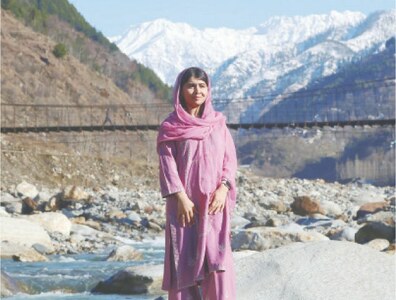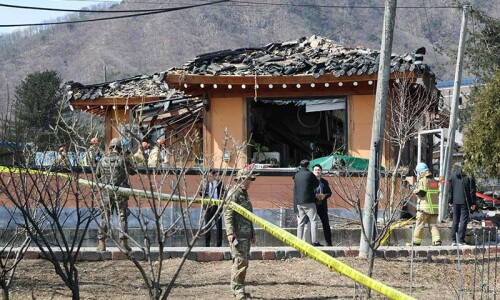Few critics of Urdu have been as controversial as Kaleemuddin Ahmad had become in his lifetime.
Reason: Kaleemuddin Ahmad rejected Urdu ghazal, the crown jewel of Urdu poetry, terming it ‘a semi-barbarous genre’ and expressed his utter displeasure and disappointment over ‘non-existence’ of Urdu criticism. He rejected progressive poets’ works as “propaganda and sloganeering”. Even Allama Iqbal fell just short of his high standards. His provocative and dogmatic remarks caused uproar in literary circles and even today he is viewed, generally, as a pessimist who wrote on Urdu literature in a dismissive tone.
Kaleem Sahib was initially impressed by Matthew Arnold. Then he was inspired by I. A. Richards, a critic known for his scientific approach towards literature. Later on, F. R. Leavis, the famous English critic whom Kaleem Sahib had met during his stay at Cambridge University, influenced him much. F. R. Leavis is often remembered for his belligerent and dogmatic attitude and his innuendoes about writers.
In addition to influence of Leavis, Kaleemuddin Ahmed’s profound study of western literature induced a tendency in him to set Western literary theories and standards as a benchmark for writers and poets of Urdu. It resulted in his praising hardly a few authors of Urdu and shooting most of them down to rock-bottom. It is generally felt that at times Kaleemuddin Ahmed becomes a bit too harsh and sounds like ridiculing the critics, writers and poets of Urdu.
Kaleemuddin Ahmed’s infamous sentence “ghazal is a semi-barbarous literary genre” had first been published in introduction that he wrote to Gul-e-Naghma, (1939), a collection of poetry by Azeemuddin Ahmad, his father (surprisingly, the introduction labels his father’s poetry as quite impressive).
Urdu Shaeri Par Aik Nazar (1940), a critical study of Urdu poetry, made ripples that never really stopped hitting the shores. He repeated his views on ghazal in this book and advocated banishing ghazal from Urdu poetry, completely ignoring the intricacies, symbolic values of words and profound meanings that ghazal offers.
His Urdu Tanqeed Par Aik Nazar (1942), a critical study of Urdu criticism, is another work that caused tumult. The book begins with a rather unvarnished first sentence, denying the very existence of Urdu criticism: “the existence of Urdu criticism is only hypothetical as it is the point in Euclidean geometry [which has no width, length or thickness] or the proverbial elusive waist of a beloved in Urdu poetry”.
It was an era when stalwarts like Moulvi Abdul Haq, Mohiuddin Qadri Zor, Hamid Hasan Qadri, Niaz Fatehpuri, Akhter Husain Raipuri and some others were writing criticism. But Kaleemuddin Ahmad did not approve of any of his contemporaries or predecessors. A positive outcome, however, of this harsh criticism was that it inspired a research dissertation on Urdu criticism titled Urdu Tanqeed Ka Irtiqa. Penned by Dr Ibadat Barelvi and first published by Anjuman Taraqqi-e-Urdu in 1949, it proved that criticism was very much existent in Urdu and Altaf Husain Hali’s Muqaddama-e-Shear-o-Shaeri written in 1890s was the first treatise on Urdu criticism, albeit not without shortcomings. Moulvi Abdul Haq in the preface wrote that the book proves “Urdu criticism is neither a beloved’s elusive waist nor Euclid’s hypothetical point”, apparently spoofing at Kaleemuddin Ahmad’s critical ideas.
Another reply came from Dr Maseeh-uz-Zaman in the shape of his book Urdu Tanqeed Ki Tareekh (1954). In his introduction, the author says that he began writing the book on the history of Urdu criticism after publication of the book by Kaleemuddin Ahmed on Urdu criticism, so “it took me 10 years to find the beloved’s elusive waist”. Period. So one may disagree with Kaleemuddin Ahmad’s notions but he has had deep impact on Urdu’s literary world and proved to be a catalyst for two serious works on Urdu criticism.
Kaleemuddin Ahmad was a critic, research scholar, academician and poet. He was born on September 15, 1908, in Patna. Having majored in English from Patna, he got a scholarship and went to Cambridge University. Returning with a degree he chose teaching profession for a livelihood.
Some of Kaleemuddin Ahmad’s other books are Fan-e-Dastan Goi (1944), Sukhan Hai Guftani (1955), Divan-e-Jahan (1959), Amali Tanqeed (1963), Kulliyaat-e-Shaad (1975) and Iqbal: Aik Mutal’a (1979). He penned his autobiography Apni Talash Mein (1975) in three volumes. A six-volume English-Urdu dictionary, a remarkable work, was published from India under the supervision of Kaleemuddin Ahmad.
Just as the influence of F. R. Leavis over readers and critics decreased after early awe and he was increasingly viewed as an idiosyncratic critic who had carved out a place for himself among prominent English critics, Kaleemuddin Ahmad, too, is seen as a critic of Urdu whose influence has waned, but no work on Urdu criticism can be termed complete without referring to him.
Kaleemuddin Ahmad died in Patna on December 22, 1983.
Published in Dawn, December 20th, 2021
















































